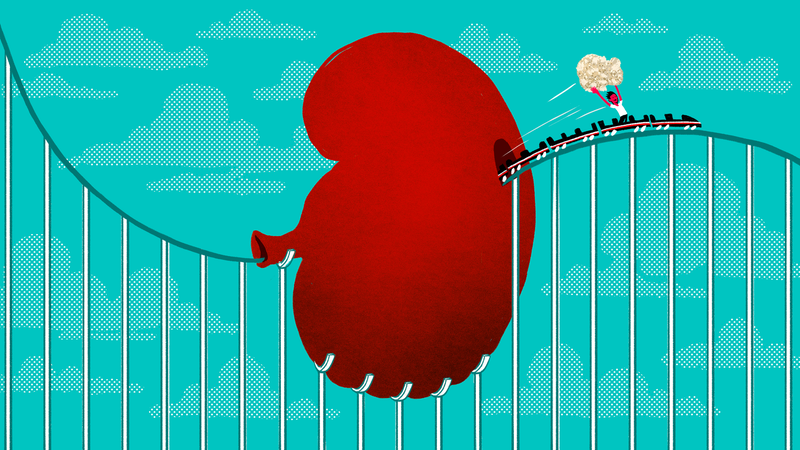I’ve been increasingly reading about the pending perils of Artificial Intelligence.
Even some of my IQ heroes — Richard Dawkins, Lawrence Krauss, Sam Harris — appear to be Chicken Littling the shit out of the dangers of sentient machines that will soon make autonomous decisions that could threaten our very existence. Harris and Krauss seem particularly fond of the Paper Clip Analogy: If we use A.I. to most effectively produce, say, paper clips, what will stop A. I. from seeing anything extraneous to that process (including us) as a waste of productivity easily solved by erasure.
To Richie, Larry and Sammy and their ilk, I humbly submit these observations:
Artificial Intelligence is a misnomer. Intelligence cannot be artificial, no more than colors or flavors can be. Nor, for that matter, cars, hydrogen bombs, Furbys  and, yes, paper clips. Elements may combine in a way they never would have if left unadulterated, but the taproot source — from flesh and brains to chemical, metal, wood and plastic alloys — were all borne of the Big Bang and the chaos that followed. Unless you’re arguing that god is artificial (future column), then anything ever produced is natural. Even robots.
and, yes, paper clips. Elements may combine in a way they never would have if left unadulterated, but the taproot source — from flesh and brains to chemical, metal, wood and plastic alloys — were all borne of the Big Bang and the chaos that followed. Unless you’re arguing that god is artificial (future column), then anything ever produced is natural. Even robots.
A.I. isn’t as close as people fear. 60 Minutes did a wonderful story on A.I. (can we change “Artificial” to “Accentuated?”) after IBM’s Watson computer shellacked human competitors on Jeopardy! That was followed by innumerable articles about the pending risks of A.I. overlords.
But how pending is it? It’s not as if Watson recognized the win and celebrated its victory with a finger wag and a “Suck it, fleshbags!” taunt.
A.I. posits that computers will soon develop self-awareness — consciousness. Yet we know less about our own consciousness than we do our own cosmos. When is a child self-aware? When does a human being become sentient? While we have made undeniable progress in understanding our own neural networks, a human brain has more than 100 trillion synapses, dwarfing the number of stars in any galaxy in the universe. I’ve yet to see reports of us being on the brink of connecting those dots into something nearing sentience. If we’re not clearing the first hurdle, how do we even recognize the second?
The assumption that A.I. will turn on us is a specious leap. Let’s retrofit this argument: If we discovered humans were created by a simpler cognitive force (say, a brilliant chimp), would we hack that chimp to death for being the intellectual lesser? Or would we be grateful George was curious?  Mercy and malevolence remain just as baffling since we crawled from the ooze.
Mercy and malevolence remain just as baffling since we crawled from the ooze.
Oh, and a final thought: Name a notoriously villainous computer (think Hal 9000, Terminator, Matrix drones). Could they be worse than the human iteration we’re haunted by currently?
And now, for some Natural Intelligence, Factslaps:
- Riding a roller coaster can help patients to expel their kidney stones.

- The use of CAPITAL LETTERS TO DENOTE SHOUTING dates back to the 19th century.
- One contender for the geographical center of the U.S. is a place called Center.

- ‘Bumpsy’ is 17th Century slang for drunk.
- Giant flying turkeys as big as kangaroos once roamed Australia.

- The US Embassy in Kathmandu has guidelines on what to do if a yeti is found.

- Life expectancy for Arabs in Israel is the highest in the Arab-Muslim world, at 79 years.
- A lychnobite is someone who sleeps all day and works all night.
- Hawaiian Airlines never had a fatal accident or a hull loss throughout its 88 year history, the oldest in the U.S.
- While apes can learn sign language and communicate using it, they have never attempted to learn new knowledge by asking questions to humans or other apes.

- The second officer of the Titanic, who survived by swimming from the sinking ship to a capsized raft, later in life sailed his civilian craft to Dunkirk and helped evacuate over 130 men.

- “Swatting” happens when someone makes a call to a police department with a false story of an ongoing crime –often with killing or hostages involved– in an attempt to draw a large number of police officers to a particular address.

- In 2017, a Texas wedding photographer was awarded a $1 million defamation verdict against a married couple whom the jury found posted false statements in a social media campaign after being unhappy about a surprise $125 fee.
- Beethoven managed to keep working even after he completely lost his hearing by the time he was 45. By clenching a stick in his teeth, holding it against the keyboard of his piano, he could discern faint sounds.

- Ghanaian soccer player Mohammed Anas accidentally thanked both his wife and his girlfriend in a speech after a match.


